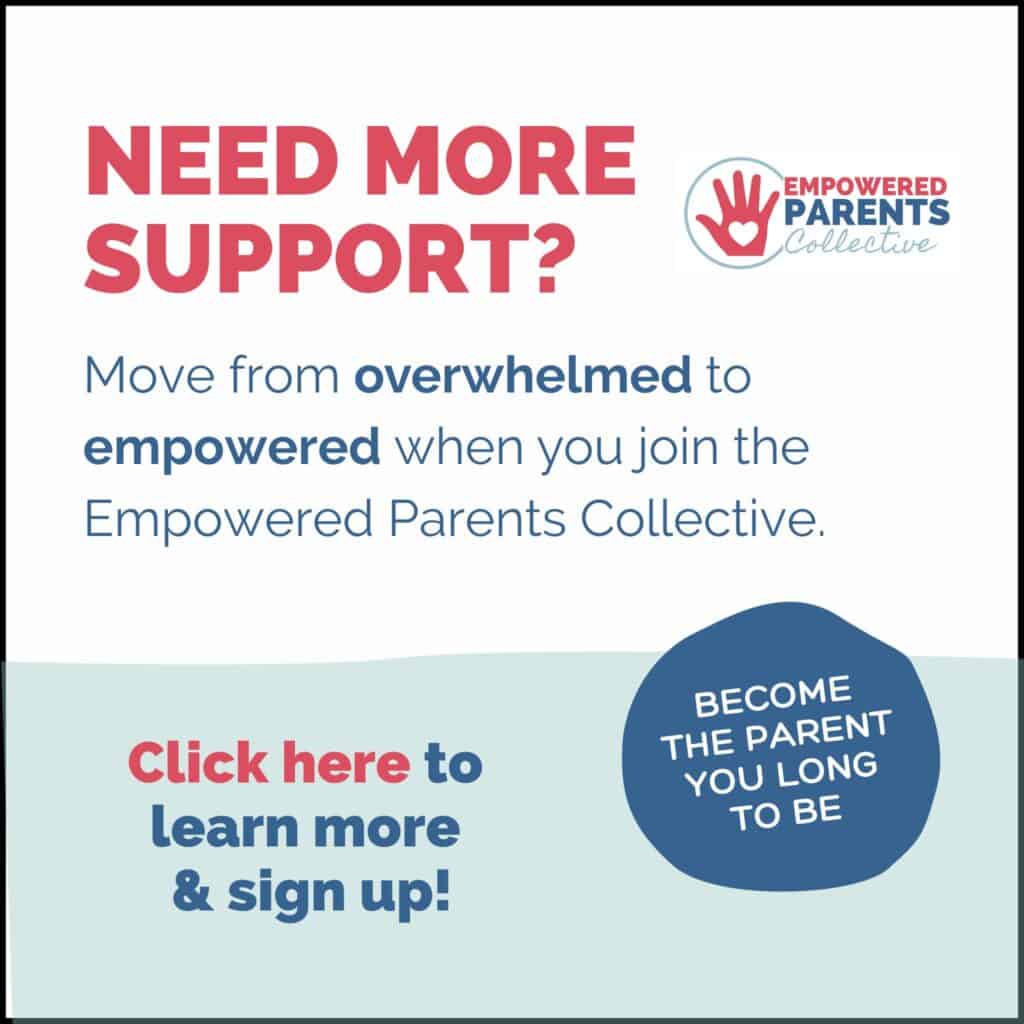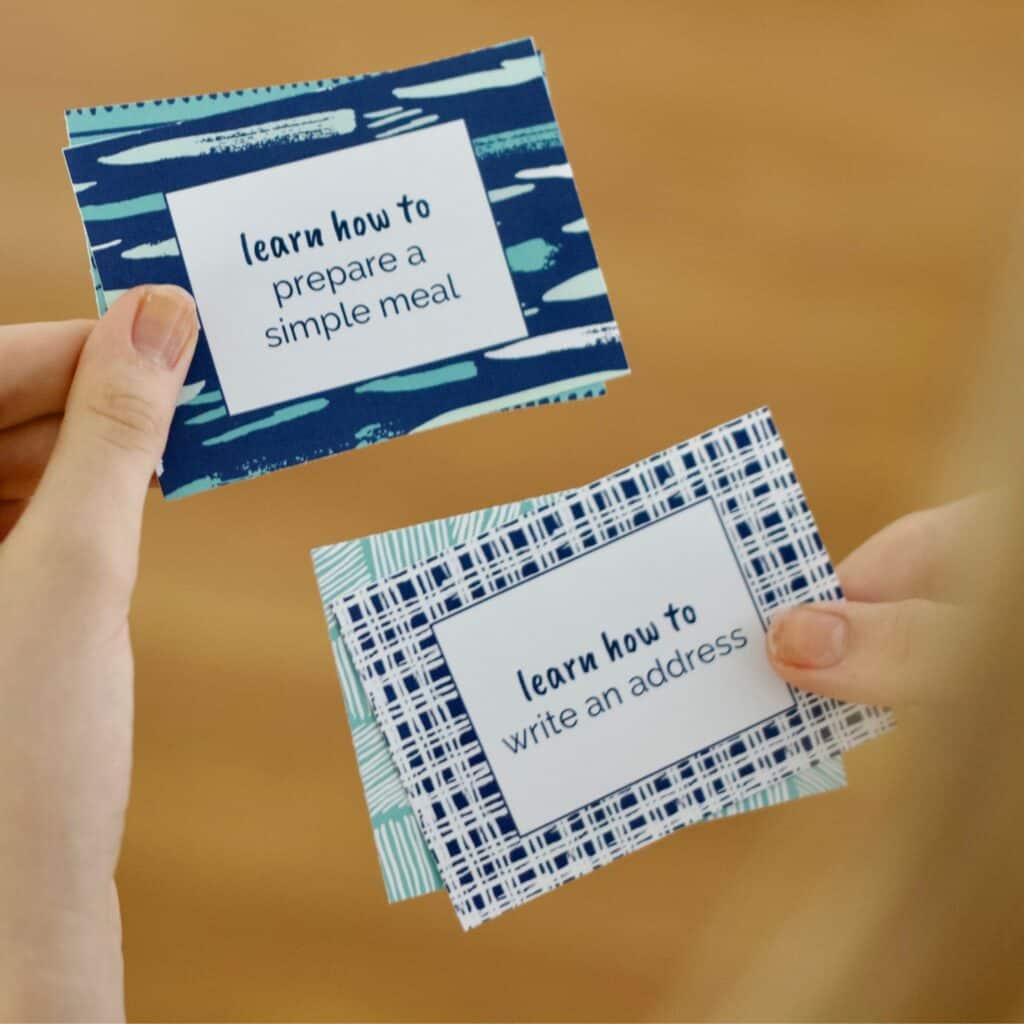What Kids REALLY Need to be Confident, Independent, and Self-Reliant
Raising self-sufficient kids is about more than just teaching life skills. Here’s how to create a home that nurtures your child’s confidence and independence.

When they were toddlers you spent hours teaching them how to tie their shoes.
When they turned 10, you gave them the low-down on how to use the washing machine.
And now you’re bracing yourself for when your teen needs to learn to drive. (Yikes!)
Teaching kids life skills is important. We’ve all heard about the teen who ends up at college unable to do his own laundry or who calls her parents for help navigating every little aspect of living on her own.
But if we really want to raise independent, self-reliant kids – who will not only know how to do their laundry but also be confident, productive, discerning human beings – they’re going to need more than just skill lessons.
That’s because self-sufficiency is more than just skills, it’s a mindset.
Our children need to have confidence that they’re capable of thinking for themselves, handling challenges and finding the right path forward on their own – without us.
So what else do you need to do besides teach skills to raise kids who have a self-sufficient, independent mindset? Here are a few of the key ingredients:
Establish connection
Paradoxically, when a parent has a strong emotional connection or bond with a child early in life it results in kids who are more independent and less reliant on others later in life.
This early emotional connection makes kids feel validated and safe when they first experience the uncertainty of life.
And this firm foundation of security carries kids into adulthood. Making it possible for them to deal with challenges with greater confidence.
But what exactly does it mean to have a connection with your children? And how is this connection established and maintained?
Dr. Laura Markham of Aha! Parenting put it this way:
“Close relationships are built, moment by moment, from shared experiences that let us touch each other deeply. Nothing extraordinary may seem to be happening on the outside, but on the inside we’re connecting with the fullness of our deepest selves…Experiences like kissing scraped knees, laughing hysterically over nothing, discussing human nature at the dinner table, or wrestling with a challenging decision during a quiet stroll at twilight – that’s what builds intimacy…”
See related:
10 Easy Ways to Bond With Your Children Even When There’s No Time in The Day
Get Your Kids to Listen to You + Strengthen Your Bond With Them at the Same Time
This is the Most Valuable Strategy for All Good Behavior
5 Ways to Connect With Your Kids (That Actually Work)
Give them freedom
Children need the freedom to explore, test, invent and be resourceful in order to better understand who they are and the world around them. This knowledge – including knowing they can fail, recover, learn from it, and do better later – builds self-confidence, and from that self-confidence, independence.
Giving kids freedom means, saying “yes” more than “no”, letting children speak their minds (respectfully), letting them make as many of their own decisions as possible, and allowing children to take occasional risks.
“If children are not allowed to take routine risks, they’ll be less likely to be able to handle real risks when they do occur.” – Dr. Peter Gray
When we give our children freedom, we’re sending the message that we have confidence in them to make good decisions (and recover from bad decisions) and be responsible. It doesn’t mean hands-off parenting where no guidance is given, but a deliberate style of parenting that involves standing back, while at the same time being ready to support and guide children.
See related:
The Over-Parenting Trap: How to Avoid Check-listed Childhoods and Raise Adults
Collaborate with them
The best way to understand a collaborative parent-child relationship is to consider the opposite: a dictatorial one. Parents who make decisions for their kids – telling them what to think, do or say – are clipping the wings of their offspring. These children have rarely or never been given the freedom to explore their own interests or learn how to handle challenges independently.
In a collaborative relationship, parents consider children’s ideas and wishes. They discuss these ideas with their children and help them problem-solve when needed.
Children are also allowed to pursue the activities that interest them, which builds their intrinsic motivation and lets them better understand who they are.
When children are given the opportunity to be part of decision making – of having their voice heard and influencing outcomes – it helps them see that they’re able to make good decisions, and also see what it’s like to be part of mature, responsible decision making.
“Parents are the main source of a child’s sense of self-worth.” – Dr. Sears
See related:
How to Raise Responsible Kids, Not Just Obedient Ones
Why Every Kid Should Talk Back to Their Parents
How to Talk So Kids Will Listen
Set high expectations
Children rise to the expectations the important adults in their life have for them. Parents with high expectations for their children expect them to try to do their best in every endeavor (emphasis on the word try), to mirror the respect they’ve been given, and to demonstrate age-appropriate responsibility. Soon, children become driven not just by their parents’ high expectations, but their own.
Setting high expectations for our children communicates to them that we believe in them and that they’re capable. But parents need to make sure this message is still clear when a child doesn’t meet those expectations. When we express shame or disappointment over a goal not achieved, for example, this sends the opposite message to children: that they’re failures.
It’s a tricky balancing act of showing unconditional love and respect to our children while at the same time letting our kids know that we believe they can be the best version of themselves. This takes knowing our children well enough to set realistic goals for them and avoiding comparisons to others.
“Children are apt to live up to what you believe of them.” – Lady Bird Johnson
See related:
Why Having High Expectations For Our Kids is Good For Them
Build trust
The foundation of any relationship is trust. This is especially true in a parent/child relationship. If trust is absent, parents will have little opportunity to guide their children into independently-minded adults and children will lack the security and confidence they need to be independent.
Trust solidifies attachment and makes kids more open and eager to listen to what their parents are telling them. Trust promotes honest communication, it provides security and demonstrates care and respect.
“If they can trust you with the little stuff, they’ll come to you with the big stuff.” – Dr. Laura Markham
See related:
You may also like:
The Secret to Raising Strong, Resilient Kids
How to Start the Birds and Bees Talk Without Dying of Embarrassment
Prevent Kids’ Sense of Entitlement With This Proven Method
4 Things That Can Cause Low Self-Esteem In Kids (and How to Avoid Them)
Ready to teach your child life skills? These cards can help! Each card in this eighty-one deck contains a skill your child can begin practicing with you or on their own. Click here or the image below to learn more.
What to do next…
1. Subscribe to Self-Sufficient Kids’ email list.
Like what you read here and want to learn more? Every Thursday I’ll send you one parenting tip about raising self-sufficient kids and creating the peaceful relationship you yearn to have with your child. Click here to sign up.
2. Take one of my quizzes!
Find out if you’re raising a self-sufficient kid (click here) or if you’re doing too much for your kids (click here). At the end of each quiz, you’ll be asked to provide your email address to see the results.
3. Get your kids started on chores.
Learn how to get your child started on chores (& keep them motivated + avoid power struggles) by enrolling in my Get Your Kids Successfully Started on Chores course. Click here to learn more and sign up.

About Kerry Flatley
Hi! I’m Kerry, the mother of two girls and a certified parent educator. I believe it is possible for parents to have a supportive, loving, and warm relationship with their kids while raising them to be independent and ultimately self-sufficient. Over the years, I’ve read numerous books and articles that support this belief and I’ve put these ideas into practice with my own kids. Read more about me and Self-Sufficient Kids here.



